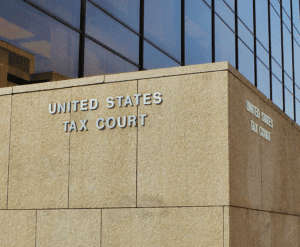
Coronavirus: IRS Extending April 15 Tax Payment Due Date
Due to the Coronavirus Pandemic (COVID-19), Treasury Secretary Steven Mnuchin announced today that the Internal Revenue Service (IRS) will be extending the April 15, 2020 deadline for the payment of most taxpayer’s Tax Year 2019 taxes due. This Coronavirus Pandemic Tax Payment Extension will only extend the payment of the taxes; however, as taxpayers will still be required to file their 2019 tax returns on April 15, 2020 (unless the taxpayer requests an extension until October 15, 2020). If a taxpayer has a liability due on their Tax Year 2019 return, each taxpayer will have a 90 day grace period to make payment to the IRS without incurring late payment penalties or interest.
This Coronavirus Pandemic Tax Payment Extension (90 day grace period) will only apply for individuals with tax due of $1,000,000 or less and for corporations with tax due of $10,000,000 or less.
While an extension of time will provide additional time for individuals or businesses to pay their taxes, it is important to note that this grace period will not extend the payment date to the extension date. Generally, all monies must be paid to the IRS by the April 15th deadline even when an extension to file is granted. It is best to always attempt to file as early as possible, especially if you owe money. In most cases, the IRS has ten (10) years to collect the debt due after it is assessed by the IRS, so the sooner a taxpayer files their tax return, the sooner that time limitation on the IRS’s ability to challenge the return can start running. There exist certain times when the time frame on the IRS’s ability to challenge can be extended, but in general it is ten (10) years. During these difficult times within the Coronavirus Pandemic, it can be scary to have to file a tax return with a balance due and the unknowing of what the IRS will do to collect that liability.
While the Coronavirus Pandemic Tax Payment Extension (90 day grace period) is helpful, it is important to note that the IRS has several alternative programs that can further assist taxpayers who are having an undue hardship due to the Coronavirus Pandemic (COVID-19) and cannot pay their taxes in full or at all.
Currently Not Collectible
Currently Not Collectible (CNC) is a program for those who have lost their jobs and currently have no income. By communicating with the IRS as soon as possible about a taxpayer’s financial situation and receiving CNC status, while the taxpayer’s tax debt remains (and penalties and interest will continue to accrue), but the IRS will not actively collect against the taxpayer until their financial circumstances change. This is an excellent programs for taxpayers who do not have current funds or income. The CNC program will be open to people affected by the Coronavirus Pandemic. The CNC program will permit a taxpayer to have the opportunity to get back on their feet.
IRS Installment Agreements
A second option for taxpayers is an installment agreement. This IRS program allows the taxpayer the opportunity to pay the taxes over time based upon a reasonable amount. There are several methods in which the IRS will determine the amount a taxpayer can pay on an installment basis. The payments will be based upon the amount due and the taxpayer’s current financial status.
Finally, there is the IRS’s offer in compromise program. This allows individuals to compromise the entire amount for a one-time payment. However, if there is only one tax year due, it is usually unlikely that this will be an option for those taxpayers.

Regardless, however, it is important for taxpayers to file tax returns as soon as possible (even if payments are delays) to start the time frame for collections as soon as possible. While these programs and this IRS extension is helpful, we understand that the entire tax process is complicated. If taxpayers fail to promptly address issues raised by the IRS, it may be impossible for a tax lawyer to undo all the damage in the future. Contact Robb Longman or one of our other IRS tax attorneys today at (301) 291-5027 to schedule a phone consultation. Our experienced IRS tax lawyers, based in Bethesda, Maryland, Rockville, Maryland, and Washington, DC are prepared to help you resolve your tax issues (whether related to Coronavirus Pandemic (COVID-19) or not) the as efficiently and discreetly as possible. Mr. Longman works with his clients to devise strategies to help them minimize their taxes in their business or personal transactions. Additionally, Mr. Longman is a regular speaker on presentations at the Section of Taxation of the American Bar Association.

This Post Has 0 Comments